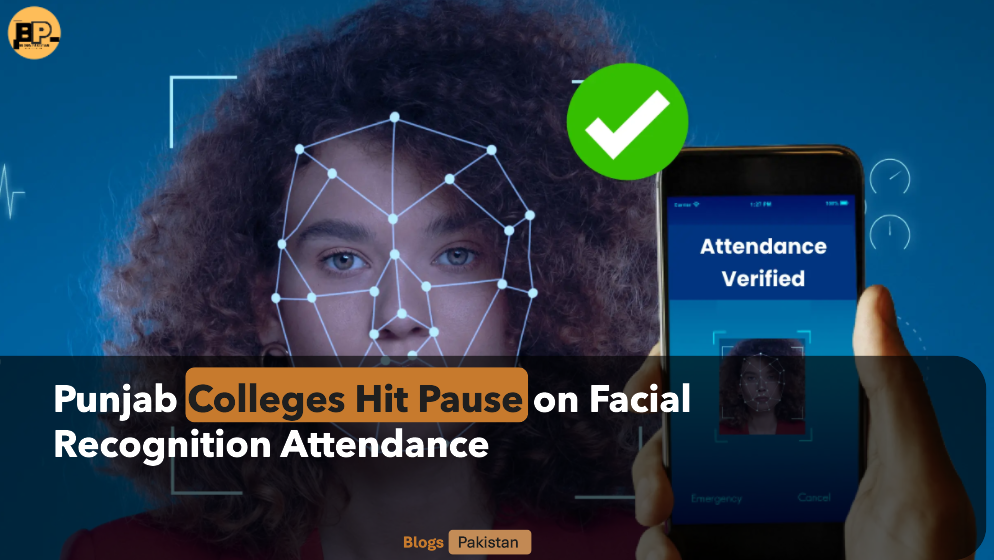Intro: When Technology Clashes With Rights
In an era where facial recognition unlocks smartphones and airport gates, Punjab’s colleges sparked a fiery debate by introducing the same tech to track teachers. But what happens when innovation outpaces consent? The Higher Education Department (HED) recently suspended a controversial facial recognition attendance system after educators revolted, calling it a breach of privacy and dignity. This clash between digital efficiency and human rights offers a lesson for institutions worldwide.
The Directive That Ignited the Fire
In May 2024, the HED quietly rolled out plans to replace traditional attendance methods with AI-powered facial recognition systems in public colleges. The goal? Streamline administrative tasks and curb absenteeism. But the move quickly backfired.
Key Details of the HED Notification from Punjab
- System Status: Labeled “developmental,” not officially launched.
- Unauthorized Use: Some colleges installed unapproved software.
- Immediate Actions: Institutions told to remove systems and delete collected data.
Despite being in a pilot phase, the directive set deadlines (May 6–15) for staff registration. Master trainers were dispatched to fast-track adoption—until backlash forced a U-turn.
Why Educators Said “No” to Facial Scans
The Punjab Professors and Lecturers Association (PPLA) led the charge against the system, framing it as a threat to autonomy and privacy. Their objections centered on four pillars:
1. Privacy Invasion
Teachers argued that biometric data collection lacked transparency. “Who owns our facial data? How is it stored?” asked a Lahore-based professor. Without clear answers, fears of misuse or leaks grew.
2. Legal Gray Areas
No laws in Pakistan currently regulate facial recognition in workplaces. The PPLA highlighted this void, stressing that surveillance without safeguards violates constitutional rights to dignity (Article 14).
3. Cultural and Religious Concerns
Female staff, particularly those wearing niqabs or hijabs, raised alarms. Facial scans could conflict with modesty norms, forcing uncomfortable choices between religious practices and compliance.
4. Surveillance vs. Solutions
“This isn’t about attendance—it’s about control,” argued a PPLA spokesperson. Educators demanded investments in classroom resources over “Big Brother” tactics.
Behind the Scenes: How Colleges Jumped the Gun
While the HED called the system “developmental,” some colleges raced ahead:
- Unauthorized Installations: At least 12 institutions in central Punjab began testing facial recognition without formal approval.
- Data Risks: Teachers reported being pressured to register despite unclear data storage policies.
- Mixed Messaging: The HED initially endorsed registration deadlines, creating confusion about the program’s legitimacy.
This haste eroded trust. “They experimented on us without consent,” said a Gujranwala lecturer.
The Bigger Debate: Is Facial Recognition Ever Ethical in Education?
Punjab’s controversy mirrors global dilemmas. From New York to New Delhi, schools and workplaces grapple with balancing efficiency and ethics.
Case Studies: Where Tech Worked—and Failed
- China: Facial recognition monitors student engagement but faces criticism for normalizing surveillance.
- Sweden: A school fined $20,000 in 2019 for using facial scans to track attendance, citing GDPR violations.
- Kenya: Teachers’ unions recently blocked a similar system over privacy fears.
Key Questions for Institutions
- Consent: Can employees truly opt out without repercussions?
- Security: How is biometric data protected from hackers?
- Purpose: Does the benefit outweigh the risks?
What’s Next for Punjab’s Attendance System?
The HED hasn’t scrapped the project but pressed pause. Moving forward requires:
1. Legal Frameworks
Pakistan’s draft Personal Data Protection Bill (2023) could set guidelines for biometric use, but progress is slow.
2. Stakeholder Dialogues
The PPLA demands a seat at the table. “Consult us before deploying tech that impacts our lives,” urges the association.
3. Transparency Measures
Colleges need clear protocols for data storage, access, and deletion. Independent audits could rebuild trust.
4. Alternative Solutions
Could fingerprint scanners or secure QR codes offer a middle ground? The PPLA suggests low-tech fixes until safeguards exist.
Lessons for the World: Balancing Tech and Trust
Punjab’s story isn’t just about attendance—it’s a cautionary tale for governments and institutions adopting AI.
3 Global Takeaways
- Privacy is Non-Negotiable: Tech adoption must respect fundamental rights.
- Slow Down to Speed Up: Rushed rollouts breed distrust. Pilot programs need consent.
- Empower, Don’t Police: Tools should support—not surveil—professionals.
Conclusion: The Human Face of Technology
As Punjab recalibrates its approach, the message is clear: Technology can’t fix systemic issues without human buy-in. For attendance systems or AI, success starts with dignity, dialogue, and due process.










